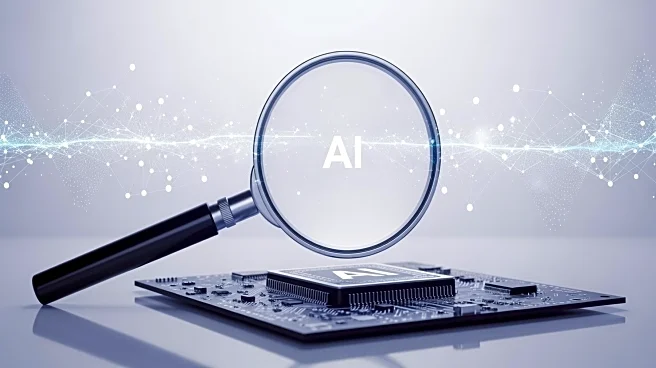What's Happening?
LinkedIn's recent Talent Connect conference in San Diego revealed a significant gap in AI skills among recruiters, despite the growing importance of AI in workforce development. According to LinkedIn data,
86% of recruiters are expected by their CEOs to build future-ready workforces, yet only a third consider themselves 'AI power users.' This disconnect is causing concern among nearly half of recruiters who fear falling behind competitors if AI skills are not enhanced. LinkedIn's Chief Operating Officer, Dan Shapero, emphasized the budgetary pressures and increased requisition loads facing recruiters, suggesting AI as a solution to do more with less. LinkedIn has introduced Hiring Assistant, a tool designed to streamline candidate intake and engagement, which has shown promising results in increasing efficiency and improving candidate experiences.
Why It's Important?
The integration of AI in recruiting is crucial for maintaining competitive advantage in the rapidly evolving job market. As recruiters are tasked with building future-ready workforces, the strategic use of AI can significantly enhance their ability to identify and engage top talent efficiently. The lack of AI skills among recruiters poses a risk of falling behind in a competitive landscape, potentially impacting organizational growth and innovation. LinkedIn's Hiring Assistant tool demonstrates the potential of AI to transform recruiting processes, offering recruiters the opportunity to focus on strategic talent advising rather than administrative tasks. This shift could lead to improved candidate experiences and more effective workforce planning.
What's Next?
LinkedIn plans to roll out several updates to its Hiring Assistant tool, including integration with Microsoft Teams and various applicant tracking systems. These updates aim to enhance collaboration between recruiters and hiring managers and provide comprehensive candidate evaluations. The introduction of pre-screening tools and voice pre-screening capabilities is expected next year, further streamlining the recruiting process. As recruiters adapt to these changes, there may be a shift in recruiting strategies and mindsets, emphasizing agile approaches and continuous learning to leverage AI effectively.
Beyond the Headlines
The adoption of AI in recruiting not only impacts efficiency but also presents ethical considerations regarding data privacy and bias in AI algorithms. As recruiters increasingly rely on AI tools, there is a need to ensure transparency and fairness in candidate evaluations. Additionally, the cultural shift towards AI-driven recruiting may require changes in organizational structures and training programs to support recruiters in developing necessary AI skills.









